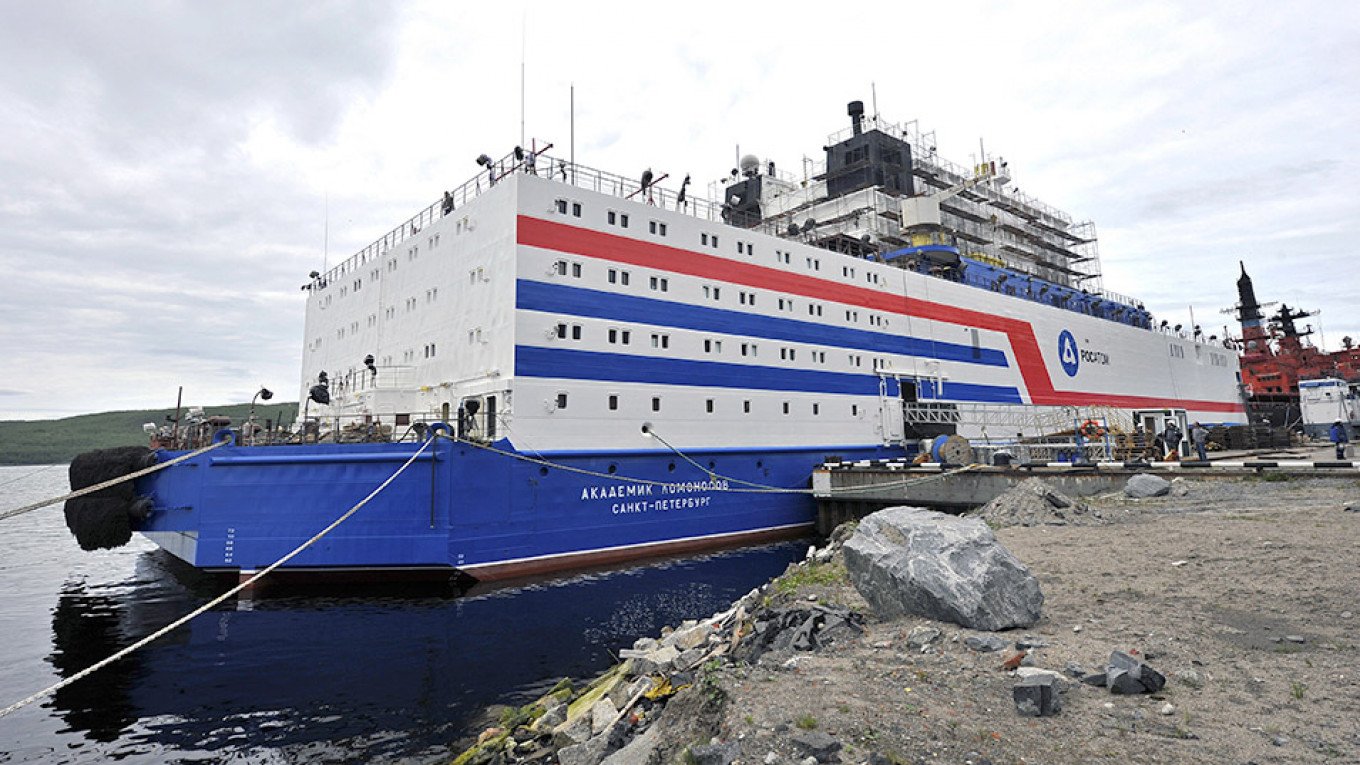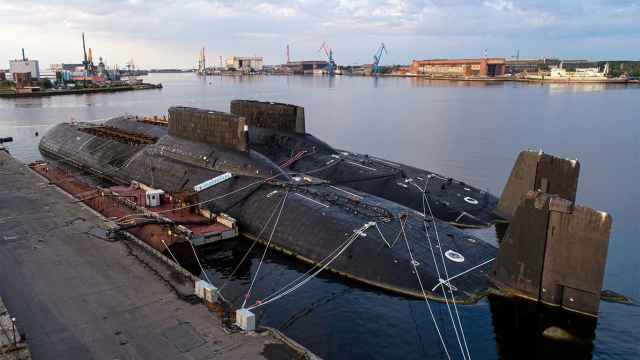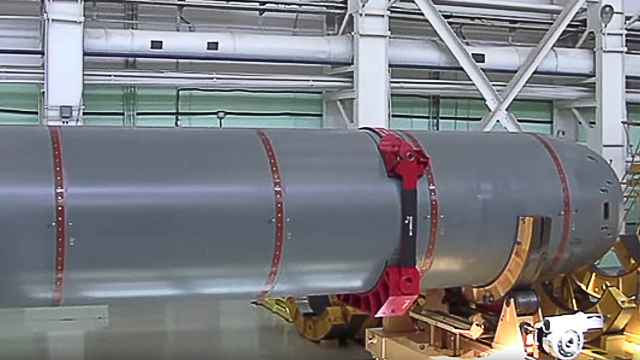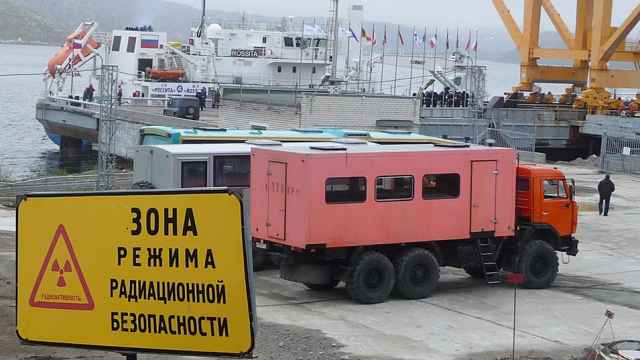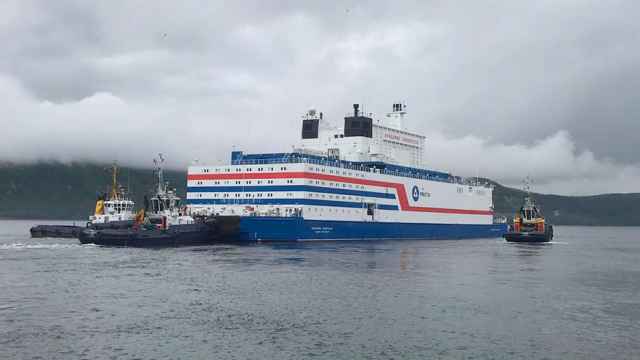Russia's first floating nuclear power plant set sail on Friday from the Arctic port of Murmansk to provide power to one of the country's most remote regions, sparking environmental concerns.
Developed by the Russian state nuclear company Rosatom, the plant, known as "Akademik Lomonosov," set off on a 5,000 kilometer (3,100 mile) journey through Arctic waters to reach the Chukotka region, which lies across the Bering Strait from Alaska.
The plant, loaded with nuclear fuel, will replace a coal-fired power plant and an aging nuclear power plant supplying more than 50,000 people with electricity in the town of Pevek.
Rosatom says the plant is safe and can serve as a new power source for the planet's most isolated communities, but environmentalists have voiced concerns over the risk of nuclear accidents.
Greenpeace has called it the "nuclear Titanic."
"We think that a floating nuclear power plant is an excessively risky and costly way of obtaining energy," Rashid Alimov of Greenpeace Russia said.
He added the unit had not been built with the purpose of fulfilling the energy needs of Chukotka, but rather to serve as a model for potential foreign buyers.
Asked to comment on Greenpeace's statement, Rosatom said: "Instead of seeing the Akademik Lomonosov as an opportunity for clean, green and stable energy supplies in harsh and remote conditions, it scaremongers."
Rosatom said the plant was able to "safely withstand a full spectrum of negative scenarios including man-made and natural disasters."
Sergey Ivanov, the president's special representative for environmental and transport issues, said that the plant had been visited by experts from the International Atomic Energy Agency (IAEA) during its construction.
"There wasn't a single remark or concern expressed on its ecological safety," Ivanov said at a ceremony to mark the plant's launch.
The nuclear plant's voyage comes at a time of heightened concern over nuclear energy, following a deadly blast this month in northern Russia during a weapons system test that caused a spike in radiation levels in a nearby city.
A Message from The Moscow Times:
Dear readers,
We are facing unprecedented challenges. Russia's Prosecutor General's Office has designated The Moscow Times as an "undesirable" organization, criminalizing our work and putting our staff at risk of prosecution. This follows our earlier unjust labeling as a "foreign agent."
These actions are direct attempts to silence independent journalism in Russia. The authorities claim our work "discredits the decisions of the Russian leadership." We see things differently: we strive to provide accurate, unbiased reporting on Russia.
We, the journalists of The Moscow Times, refuse to be silenced. But to continue our work, we need your help.
Your support, no matter how small, makes a world of difference. If you can, please support us monthly starting from just $2. It's quick to set up, and every contribution makes a significant impact.
By supporting The Moscow Times, you're defending open, independent journalism in the face of repression. Thank you for standing with us.
Remind me later.



